Behind Every Great Man: Lady Jane Wilde
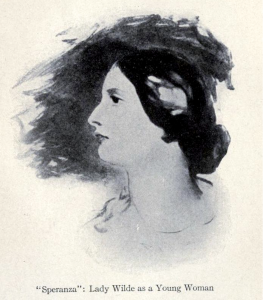
Lady Jane Wilde
When Lady Jane Wilde (1821-1896) learned that her son Oscar’s latest play had the provisional title ‘A Good Woman’, she wrote to express her disapproval: ‘I do not like it- “A Good Woman”. It is mawkish. No one cares for a good woman. “A Noble Woman” would be better,’ she insisted. Oscar renamed his play Lady Windermere’s Fan.
Jane Wilde was an exceptionally noble woman who had a profound influence on her son’s work and on his character. A poet, an essayist, an accomplished linguist, a wit, a beauty, a very loving wife and mother, and a campaigner for liberty and women’s rights, she brought Oscar up to believe that a woman could be just as creative and intelligent as a man. He admired her considerable intellect and her insatiable appetite for life.
Although, as a child, Jane was exceptionally bright and eager to learn, she had no access to formal education and was obliged to teach herself. In an interview she gave towards the end of her life, she recalled her studious nature: ‘I was always very fond of study, and of books,’ she said.
My favourite study was languages. I succeeded in mastering ten of the European languages. Till my eighteenth year I never wrote anything. All my time was given to study.
Until her early twenties, Jane lived quietly with her widowed mother and declared herself ‘quite indifferent to the national movement’ in Ireland. The impetus for her decision to write for The Nation newspaper, the organ of the revolutionary Young Irelander movement, was the death of Thomas Davis, one of the movement’s leaders.
Charles Gavan Duffy, editor of The Nation, invited contributions from sympathetic readers and was particularly impressed by the fiery poetry he received from Jane, who wrote as Speranza and signed her letters John Fanshaw Ellis. In his memoir Four Years of Irish History, Duffy recognised in her ‘the spirit of Irish liberty embodied in a stately and beautiful woman’.
In famine-stricken Ireland, Jane’s words had a galvanizing effect. In ‘The Voice of the Poor’, she railed against the horror: ‘before us die our brothers of starvation’, she wrote. In ‘The Famine Year’, she condemned the arrival of ‘stately ships to bear our food away’. In ‘The Exodus’, she lamented the ‘million a decade’ forced to flee.
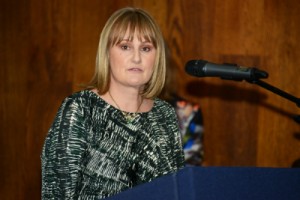 As conditions worsened, Jane became increasingly provocative and her unsigned editorial ‘Jacta Alea Est’(the die is cast), an unmistakable call-to-arms, prompted the suppression of The Nation. Duffy revived it after the failed rising of 1848 and Jane wrote a poem to mark the occasion but she had lost her fire and turned her attention to a fight for gender equality instead.
As conditions worsened, Jane became increasingly provocative and her unsigned editorial ‘Jacta Alea Est’(the die is cast), an unmistakable call-to-arms, prompted the suppression of The Nation. Duffy revived it after the failed rising of 1848 and Jane wrote a poem to mark the occasion but she had lost her fire and turned her attention to a fight for gender equality instead.
Throughout her life, Jane was bitter in her condemnation of the neglect of women. In 1850, she raged:
Women truly need much to be done for them. At present they have neither dignity nor position. All avenues to wealth and rank are closed to them. The state takes no notice of their existence except to injure them by its laws.
Three decades later, when widowhood obliged her to join her sons, Willie and Oscar, in London, she began contributing wide-ranging, learned articles to various magazines. She also published several collections of essays. In ‘The Bondage of Women’, an essay included in Social Studies, she expressed despair at the disregard shown for intelligence in women:
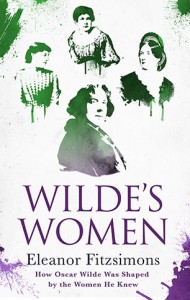 Genius never yet unsexed a woman, or learning or culture ever so extended; but the meanness of her ordinary social routine life, with all its petty duties and claims, and ritual of small observances, degrades and humiliates her, for it deprives her of all dignity, and leaves her without any meaning in God’s great universe.
Genius never yet unsexed a woman, or learning or culture ever so extended; but the meanness of her ordinary social routine life, with all its petty duties and claims, and ritual of small observances, degrades and humiliates her, for it deprives her of all dignity, and leaves her without any meaning in God’s great universe.
Elsewhere in Social Studies she proclaimed: ‘We have now traced the history of women from Paradise to the nineteenth century and have heard nothing through the long roll of the ages but the clank of their fetters’. Her strongest rhetoric was saved for her lifelong campaign for women to be granted greater access to formal education. ‘It is impossible to believe’, she insisted
…that woman will be less attractive because educated, less tender and devoted because learned, less loving because she can attain the high station, honour, dignity and wealth, which hitherto only marriage could confer, by her own unfettered intellect and genius.
Yet, despite the odds, she often felt hopeful and insisted that righteous thinking and courageous action would lead inevitably to change. Her optimism shines through in this passage from Social Studies:
Now, for the first time in the history of the world, a path is opening to female intellect, energy and talent, and, henceforth, women, perhaps, may lead in the learned professions, take their part in home government, form ministries to organise the code of female rights, and claim the highest university honours in rivalry with men.
Marking Jane’s death, on 3 February 1896, a sympathetic obituary in The Athenaeum declared: ‘Under the mark of brilliant display and bohemian recklessness lay a deep and loyal soul and a kindly and sympathetic nature’. The Freeman’s Journal lauded her as ‘almost the last of that brilliant circle of poets and writers who, fifty years ago, gave to the “Young Ireland” movement a world-wide celebrity’. The Virginia Enterprise described her as ‘a brilliant woman who had contributed much to literature and social life in England and Ireland’, and paid tribute to her as ‘a confirmed woman’s rights woman’.
Author Note:
Eleanor Fitzsimons is a researcher, writer and journalist specialising in historical and current feminist issues. She has an MA in Women, Gender and Society from University College Dublin. In 2013, she won the Keats-Shelley Essay Prize with her essay ‘The Shelleys in Ireland’ and she is a contributor to the Romanticism Blog. Her work has been published in a range of newspapers and journals including The Irish Times, the Guardian, History Ireland and History Today. She is a regular radio and television contributor. Her first book, Wilde’s Women was published by Duckworth in the UK in October 2015 and in the US by Overlook Press in January.
Category: Contemporary Women Writers, On Writing




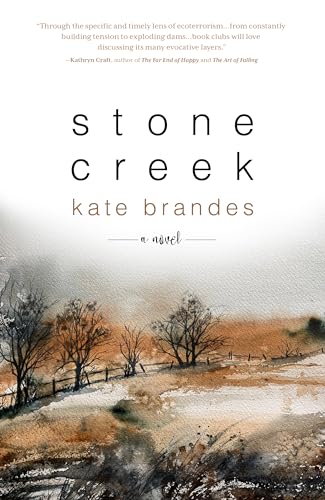
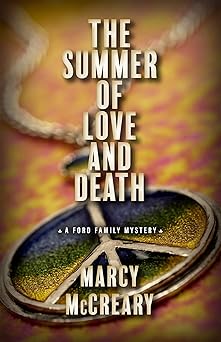
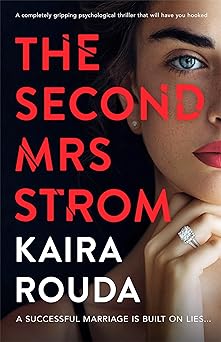

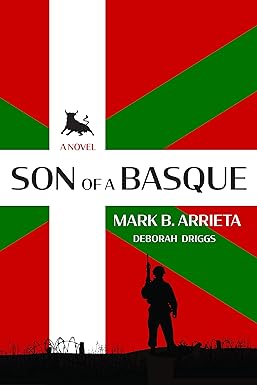
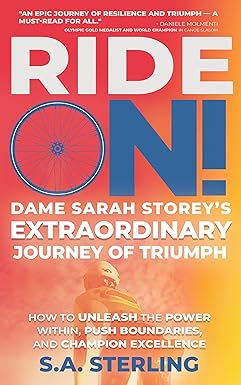
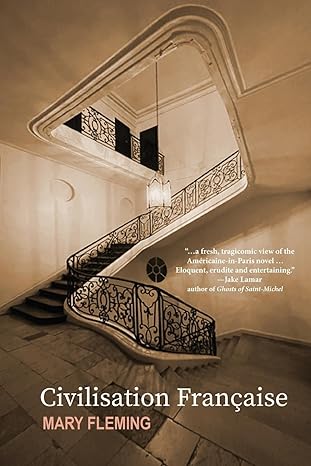

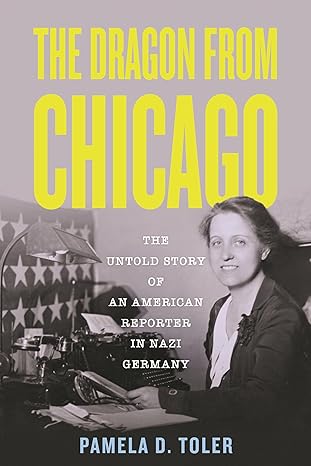
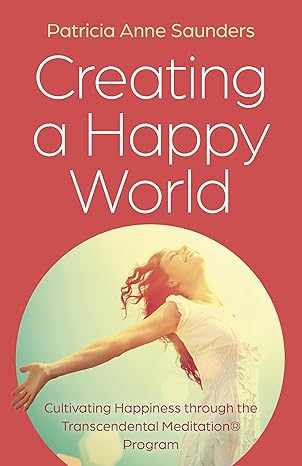
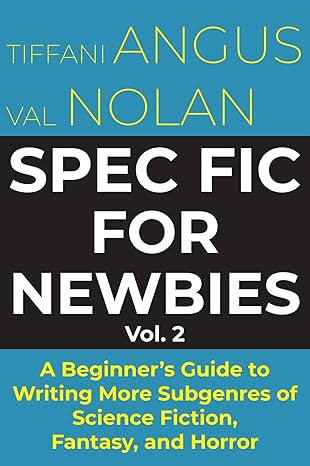
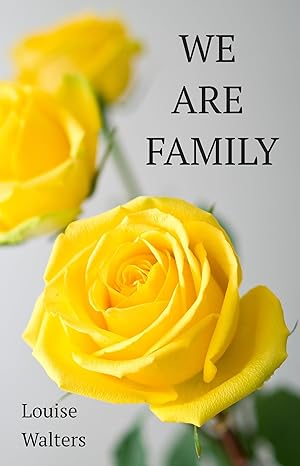
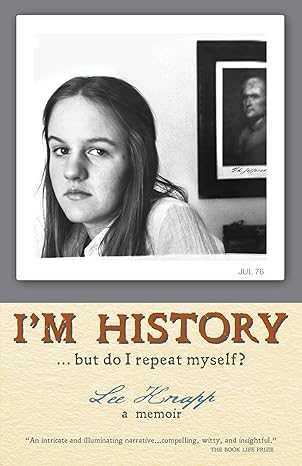
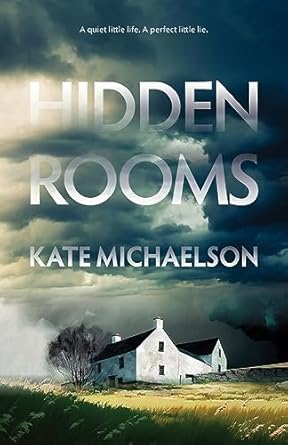
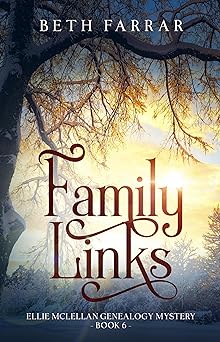

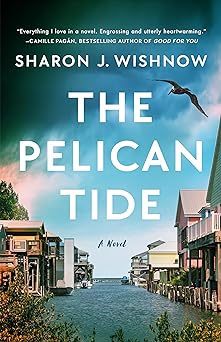

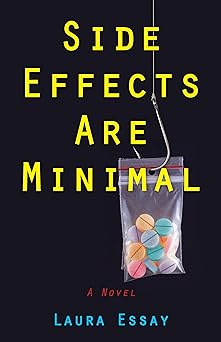
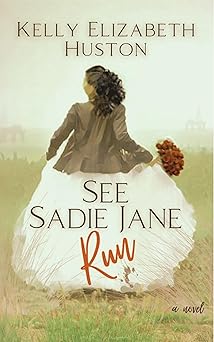
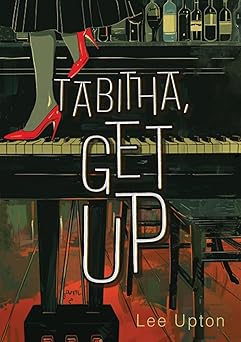
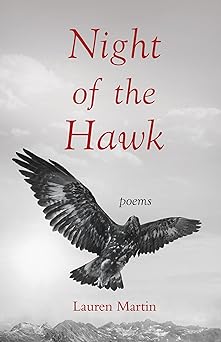
Comments (1)
Trackback URL | Comments RSS Feed
Sites That Link to this Post